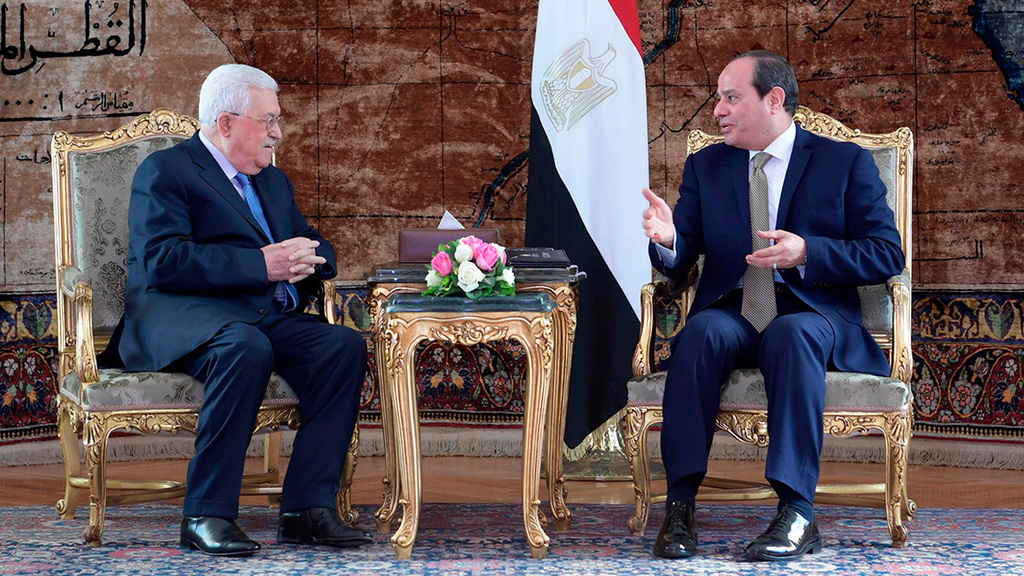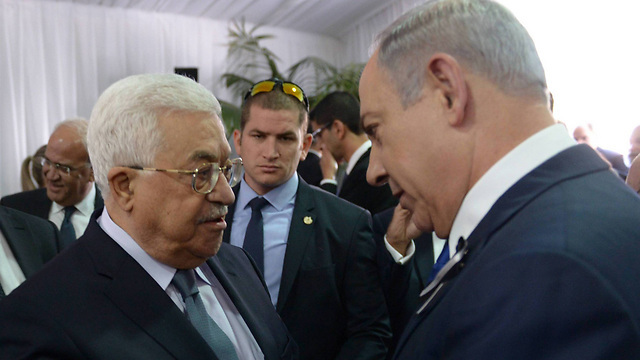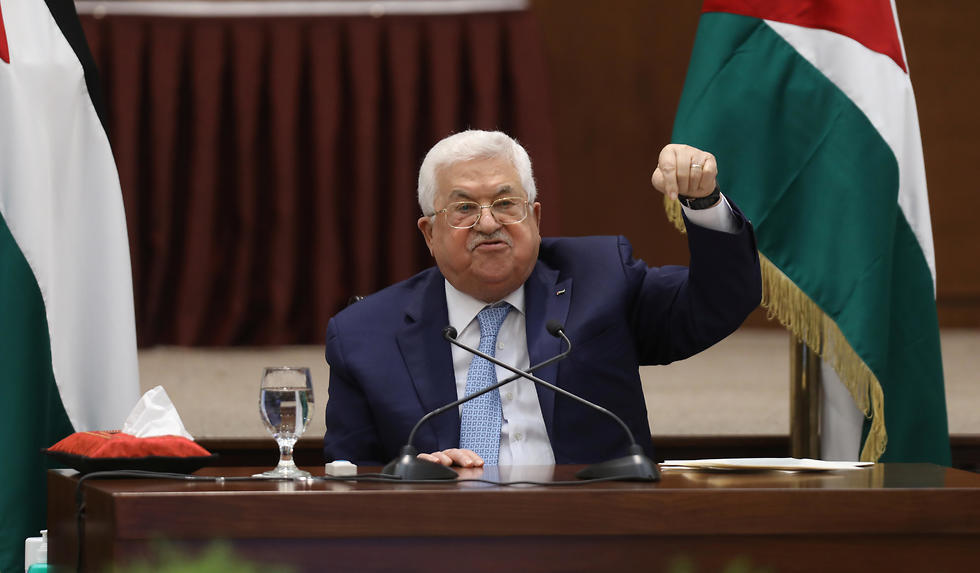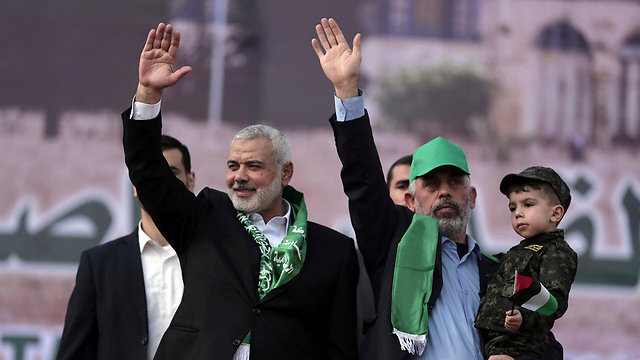Getting your Trinity Audio player ready...
Palestinian President Mahmoud Abbas has notified the European Union, Jordan and Egypt of his decision to postpone Palestinian parliamentary elections, originally scheduled for May 22, the Lebanese newspaper Al-Akhbar reported on Tuesday.
Abbas' decision to delay the elections is due to Israel's refusal to allow Palestinians living in East Jerusalem to cast a ballot in the first Palestinian legislative elections in 15 years, the report said.
The EU reportedly asked Abbas to delay his announcement until Thursday in order to give the European bloc time to try to pressure Israel into allowing voting to take place in East Jerusalem.
A spokesman for Prime Minister Benjamin Netanyahu's office said there has been no formal announcement on whether Israel will allow Palestinian voting in Jerusalem, as it did during the last elections in 2006.
But a Palestinian official close to Abbas, Hussein al-Sheikh, said Israel had officially informed the Palestinians that it would not permit balloting in the capital.
"We will not agree under any circumstances to hold general elections without [East] Jerusalem and its inhabitants," Abbas declared Monday evening at a meeting of the Central Committee of his Fatah movement that controls the West Bank and Palestinian Authority, urging the international community to put pressure on Israel.
5 View gallery


An official from the Palestinian Central Elections Commission registers voters for the upcoming elections
(Photo: AFP)
Abbas also sent a representative to meet with Qatari officials to convince the Gaza Strip's ruling Islamist group Hamas not to escalate tensions over the cancellation of the elections in May, public broadcaster Kan reported Monday evening.
The veteran Palestinian leader was expected to issue a presidential decree postponing the polls on Thursday after Fatah leaders meet in Ramallah, but without setting a new date.
Israel told the Europeans it did not intend to interfere in the elections but was worried about Hamas’ projected landslide victory and its implications on the country's stability.
The timing of the long-awaited polls was largely seen as a bid to reset relations with Washington under U.S. President Joe Biden. Earlier this month, Biden began to restore U.S. aid to Palestinians that was cut under predecessor Donald Trump.
Wasel Abu Youssef, an Abbas confidant and member of the Palestine Liberation Organization's Executive Committee, confirmed Tuesday that the issue of voting in Jerusalem was a key factor in Abbas' thinking.
"Any prevention or obstruction of holding elections in Jerusalem would entail a postponement," he said.
5 View gallery


Palestinian President Mahmoud Abbas meeting with his Egyptian counterpart Abdel Fattah al-Sisi in Cairo
(Photo: AFP/Archive)
An Egyptian intelligence official said that the Palestinians informed Cairo that they plan to postpone the elections over the Jerusalem issue and that Abbas would announce the decision at the Fatah meeting on Thursday.
At a meeting on the issue with European ambassadors on Tuesday, the Foreign Ministry's Deputy Director of International Organizations Alon Bar pointed to Hamas’ involvement in inciting the recent riots in Jerusalem and the launch of rocket fire from the Gaza Strip at Israeli population centers.
Bar warned of Hamas entrenchment in the West Bank and its implications for stability in the region, promotion of civilian projects in the PA, as well as attempts to promote negotiations between Israel and the PA.
5 View gallery


Mahmoud Abbas and Benjamin Netanyahu meeting at Shimon Peres' funeral in Jerusalem, Sept. 2016
(Photo: GPO)
At the end of the meeting, Bar emphasized that Israel was treading carefully and responsibly to prevent the deterioration of the situation and expected the European countries to act in the same fashion.
Fatah infighting, Hamas gains
Palestinian analysts say the Jerusalem dispute offers Abbas an excuse to call off elections he might lose.
After the elections were announced, his own Fatah party split, with internal challengers announcing their own list of candidates that threatens to undermine the official slate.
The split could jeopardize Abbas's long grip on power by allowing the Islamist group Hamas to gain more seats from Fatah's internal divisions - a key reason Fatah lost the previous elections.
"[Abbas] could certainly use [Jerusalem] as a pretext to delay the election," Gaza political analyst Talal Okal said, adding that Abbas's main concern "is Fatah, its separate lists, and fears that Hamas might get higher votes than Fatah."
Hamas and other Palestinian parties have objected to any delay.
"There is no chance [we will] discuss a delay. What we should discuss is how to conduct the election in Jerusalem," Hamas spokesman Hazem Qassem said.
Hamas seized control of Gaza in 2007 from Abbas's Palestinian Authority, which has limited self-rule in the West Bank. The two have been in a protracted power struggle since.
About 6,300 East Jerusalem Palestinians would need to cast ballots at Israeli post offices in the city, in accordance with past agreements, Palestinian officials say. The rest of the city's 150,000 Palestinians can vote outside the city, they say.
i24NEWS contributed to this report



